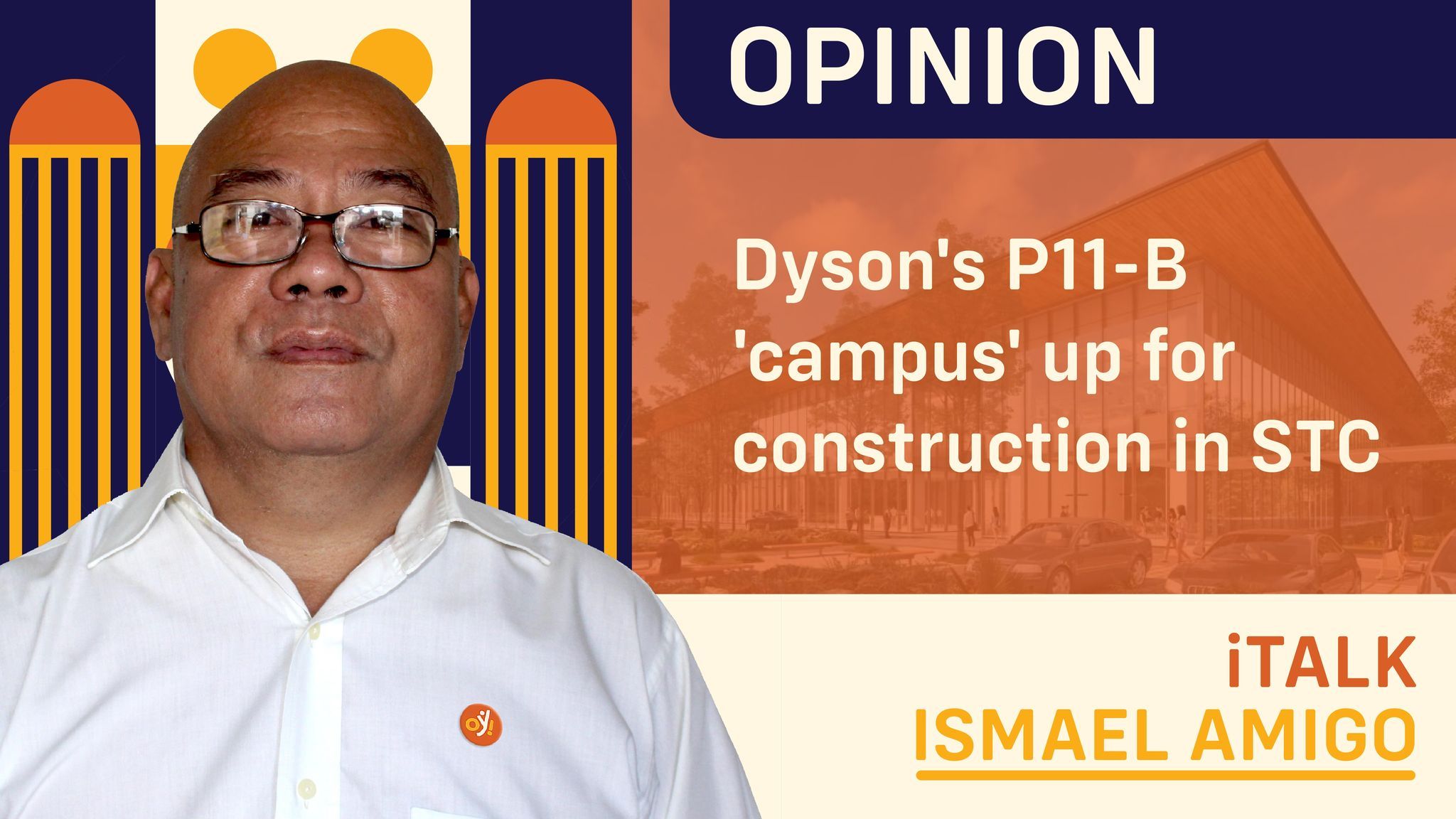In the heart of Sto. Tomas City, Batangas, a different kind of game is about to unfold.
Dyson, the British tech giant celebrated for its avant-garde creations like bladeless fans and bagless vacuums, is gearing up to construct its most expansive software center yet, a colossal P11-billion hybrid plant set to redefine the landscape of innovation. It is on the drawing board for next year in the city.
According to reports, the colossal hybrid plant would occupy an area equivalent to 92 basketball courts. Dimensions of a regular basketball court are 91.8ft in length and 49.21ft wide, just imagine how big it would be.
Dyson's vision transcends a conventional facility; it's a campus, a sprawling testament to the company's commitment to pushing boundaries. Edwin Adriaansen, Dyson's Global Software Director, expressed his excitement about the project, labeling it the "biggest software hub of Dyson."
In a recent interview at Dyson's global headquarters in Singapore, Adriaansen outlined the company's strategic move: consolidating its Philippine operations under one roof. This consolidation integrates the current software lab in Alabang and the manufacturing facility in Calamba, Laguna.
The venture, scheduled for completion by the third quarter of 2024, isn't just a monument to Dyson's prowess—it's a promise of growth and innovation for the Philippines.
Anticipated to generate around 2,000 jobs, including 400 engineers and over 50 graduate engineers, Dyson aims to make the new hub a dynamic force by mid-2024, boasting a projected workforce of approximately 1,250 employees.
Adriaansen emphasized that the Philippines is not merely a support hub; it's a pivotal player in Dyson's global development strategy. Confident in the country's "very talented people," he envisions collaboration with local universities shaping the future of software development.
The selection of the Philippines as Dyson's hub was no arbitrary decision. Adriaansen attested, "The Philippines has the best characteristics to be successful." The Batangas facility aspires to be the nation's premier software facility, nurturing the creation of dedicated products by Dyson Philippines.
John Churchill, Dyson's Chief Technology Officer, shed light on what drew the company to the Philippines: a hunger for learning, strong communication skills, and a passion for collaborative teamwork among Filipinos.
The First Philippine Industrial Park (FPIP) in Sto. Tomas, the campus' chosen location, envisions becoming the "Silicon Valley of the Philippines," with hopes that Dyson's presence will magnetize other tech companies to the area.
Acknowledging potential risks amidst global economic uncertainties, Adriaansen remains optimistic, echoing Dyson's resilient DNA: "We don't give up early; the option is to go, go, go for it. The same with our products, 75 percent of our products never make it to the market — you will never see it. The same with the campus, there's no reason it shouldn't work."
Dyson's groundbreaking venture in Batangas signifies not only a commitment to innovation but also a belief in the synergy of manufacturing and design in a single, cutting-edge location. As the dimensions of a basketball court take physical form in Sto. Tomas City, Dyson is set to redefine the playing field of technology and software development, leaving an indelible mark on the Philippine landscape.
As this happens, it is also an ardent prayer by this corner that as early as now, sound traffic planning should already be on the drawing board because, while this is a surefire job generator, the anticipated number of hires also equates to an additional number of vehicles and traffic on the road to and fro FPIP.
Abangan.
#iTalk #IsmaelAmigo #Dyson #SoftwareCenter #StoTomas #Batangas #FirstPhilippineIndustrialPark #SiliconValleyOfThePhilippines #OpinYonColumn #OpinYonBatangas #OpinYon #WeTakeAStand
